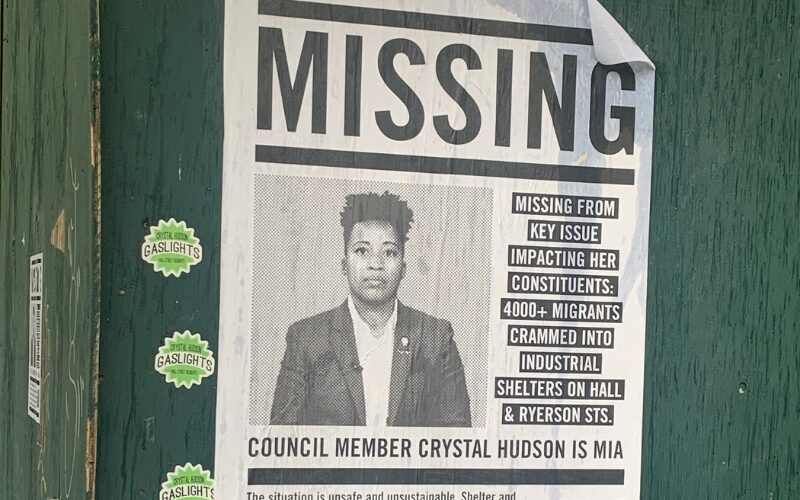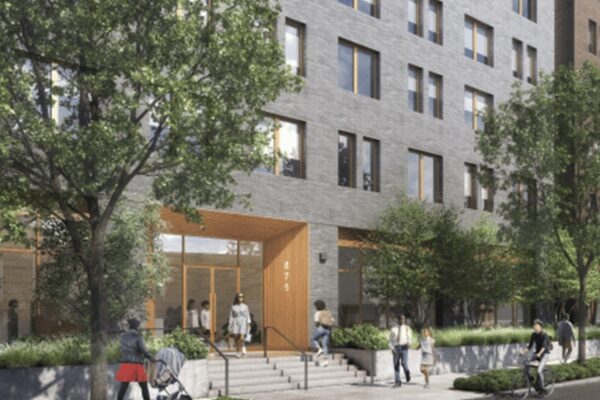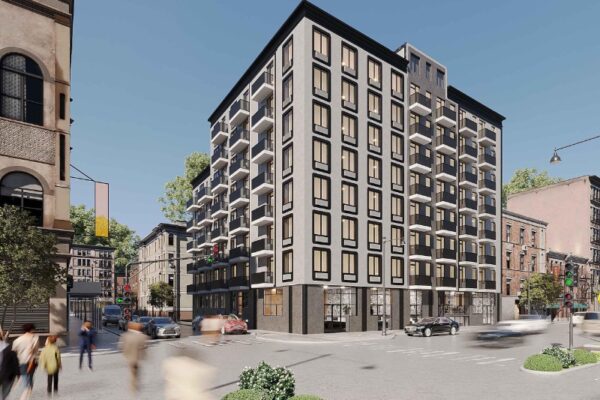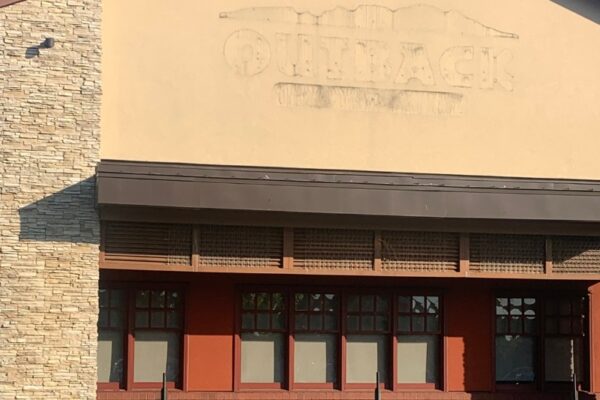In Clinton Hill, Brooklyn, the crisis at a local migrant shelter has intensified scrutiny on Councilwoman Crystal Hudson, who is grappling with significant challenges in managing the situation. Amid calls from the community for effective leadership and solutions, Hudson’s responses have been limited, stirring concerns about the neighborhood’s future, and has led to residents posting Missing in Action posters on construction sites on Hall St. Whereas Hudson has been seen in the community, the poster suggests she’s absent when it comes to the leadership they were hoping for.
On May 31, Renee Collymore, Democratic Liaison for the 57th AD, along with Clinton Hill residents, convened a follow-up town hall meeting at the Masonic Temple. The meeting drew hundreds of community members who expressed their dissatisfaction with the current housing of 3,200 migrants in local shelters.
The discussion revealed that the lease for the shelter at 47 Hall St. is set to expire in March 2025, with an option to extend for seven more years, sparking widespread community uproar.
Residents voiced their frustrations, particularly directed at Councilwoman Hudson, for what they see as a lack of leadership and slow response in devising actionable solutions. “All we need is leadership,” stated resident Monique Gramby, emphasizing that simply adding more resources is insufficient given the overcrowding—well above the 400-person capacity that experts recommend for such facilities.
Renee Collymore stated, “Many residents of Clinton Hill are going through a traumatic experience as we are trying to understand why we were never notified about these shelter, why does Clinton Hill have the highest migrant population in the City of New York and why won’t local government bring our voices to the forefront concerning even distribution and an emergency reduction of the current migrants at 47 Hall and 29 Ryerson Streets. We are strongly asking for the lease at both shelters, NOT to be renewed and to create smaller sites to be spread throughout New York City. Our neighborhood cannot sustain such high numbers of migrants. The quality of life has declined due to the unbelievable increase of migrants that are arriving at 1,100 per month. We need a dedicated person to monitor the conditions and activities in and around the shelters.”
Alia Mckee Martinez, another local resident, highlighted recent violence within the shelters, “There were three stabbings in the shelters, and there was a brawl. More resources won’t cut it. We are asking for your leadership to close 47 Hall and create smaller shelters spread across the five boroughs.”
During the town hall, Camille Joseph-Varlack from the Mayor’s Office acknowledged that resistance from communities often influences the placement of shelters. She noted, “We have districts where elected officials beg and plead not to put shelters in their districts. Those are the areas where you will find very few shelters.”
This statement underscored the perception that Hudson had not adequately opposed the large-scale shelters, nor had she proposed any real solutions to the crisis. While Hudson reiterated the complexity of the issues and the urgent needs to be addressed, her plans remained vague with little follow-through.
Attorney General Letitia James, speaking not in her official capacity but as a local resident, called for a “multi-governmental approach” and questioned the absence of representatives from other local elected officials’ offices.
The other elected officials responsible for Clinton Hill, who were absent from the Town Hall, include Phara Souffrant Forrest (Assembly), Jabari Brisport (Senate) and Nydia Vazquez (Congress). Forrest and Brisport had representatives at the previous town hall, but none were present at this town hall.
The ongoing crisis at the Clinton Hill migrant shelter poses a significant test for Councilwoman Hudson’s leadership. Solving this crisis, stakeholders argue, requires a comprehensive strategy that includes immediate relief for overcrowding, long-term housing solutions, collaboration across government and non-profits, and transparent communication with the community.
As the situation continues to unfold, the community’s patience is dwindling, underscoring the urgent need for Councilwoman Hudson, and other elected officials to step up to provide decisive and effective leadership. So far neither Hudson, Forrest, Brisport or Velazquez have addressed the most serious concern of most residents, which is the massive number of migrants in the shelters, specifically the largest shelter at 47 Hall St.
Subscribe to ClintonHill.com for updates on this issue as well as other issues that impact the lives of residents of Clinton Hill and Ft. Greene.




















